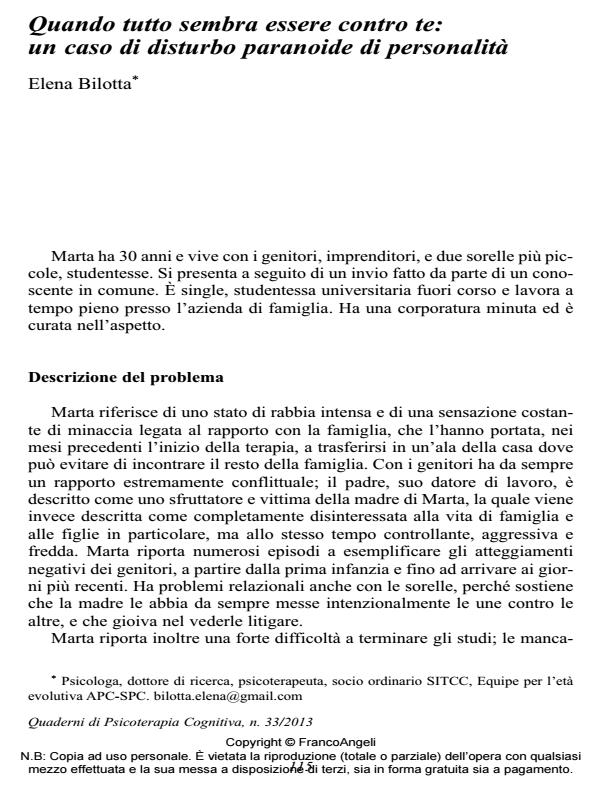Quando tutto sembra essere contro te: un caso di disturbo paranoide di personalità
Journal title QUADERNI DI PSICOTERAPIA COGNITIVA
Author/s Elena Bilotta
Publishing Year 2013 Issue 2013/33
Language Italian Pages 11 P. 115-125 File size 128 KB
DOI 10.3280/QPC2013-033008
DOI is like a bar code for intellectual property: to have more infomation
click here
Below, you can see the article first page
If you want to buy this article in PDF format, you can do it, following the instructions to buy download credits

FrancoAngeli is member of Publishers International Linking Association, Inc (PILA), a not-for-profit association which run the CrossRef service enabling links to and from online scholarly content.
When everything seems to be against you: a case of paranoid personality disorder Marta is a young woman, a failing student and a worker. She is living together with her native family. The problems she presented were characterized from the very beginning by a leitmotif: a deep sense of persecution and injustice. Although we had some relational difficulties in the early phases of therapy, we overcame them with time. We managed to identify some of Marta’s recurrent thoughts, and we were able to link them up to the different situations she used to live, with the main aim of helping her to read her interior emotional states and to overcome her metarepresentational difficulties. Socratic dialogue and functional analysis were the main therapeutic instruments used, together with a particular and specific attention to the interpersonal cycles. Some personal consideration about the difficulties and the progresses made during the therapy are presented, together with a classic formulation of the case and the description of the different stages of the therapeutic process.
Keywords: Paranoid personality disorder, interpersonal cycles, metarepresentative deficit.
Elena Bilotta, Quando tutto sembra essere contro te: un caso di disturbo paranoide di personalità in "QUADERNI DI PSICOTERAPIA COGNITIVA" 33/2013, pp 115-125, DOI: 10.3280/QPC2013-033008